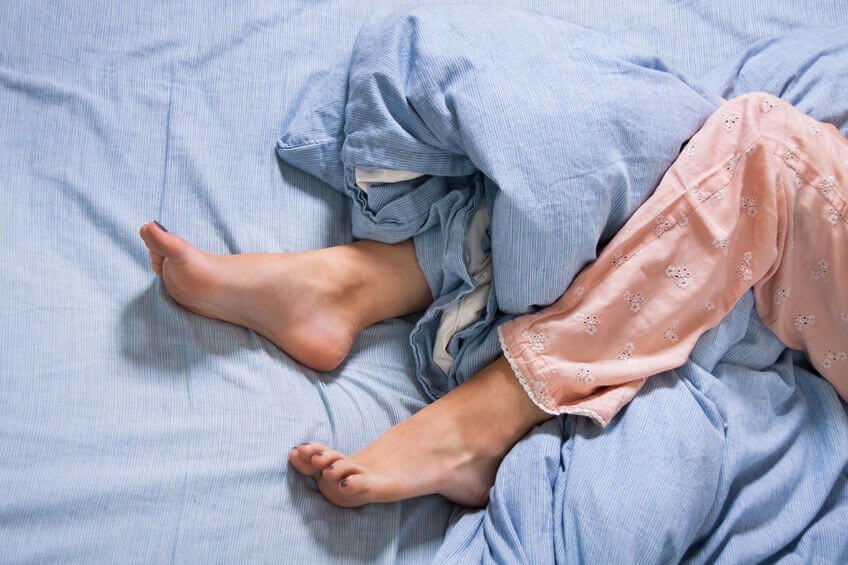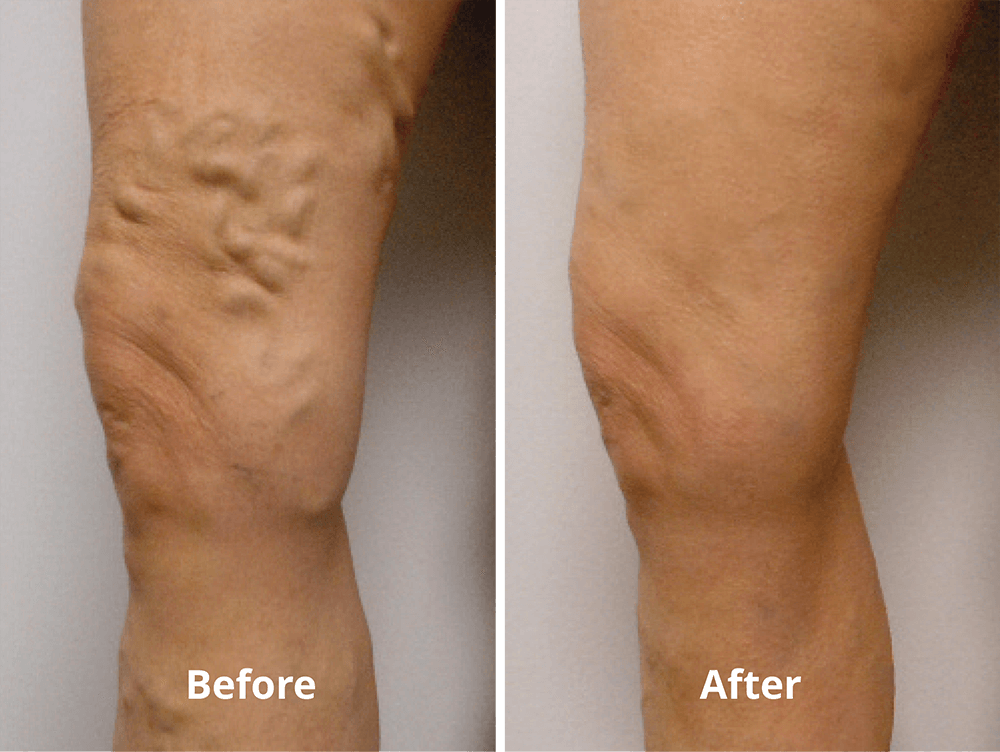Restless Leg Syndrome
What Is Restless Leg Syndrome?
Are you kept awake at night with irresistible urges to move your legs; a “creeping” feeling in the legs; persistent leg movement during sleep; or tingling, burning, aching or numbness of the legs? This is known as Restless Leg Syndrome (RLS) and is thought to affect as much as 15 percent of the general population. The symptoms of RLS are worse at night or during periods of relaxation, such as lying down during the day. They tend to improve with activity. These symptoms disrupt the sleep not only of the RLS sufferer but can disrupt the sleep of their bed partner as well.

RLS and Varicose Veins
Venous insufficiency is an often-overlooked cause of Restless Leg Syndrome (RLS). Several studies indicate that as many as 22% of those with RLS also have venous insufficiency. When restless legs occur with venous insufficiency, the RLS can be improved significantly by treating the varicose veins. A study published in the Journal of Phlebology reported that in patients with both RLS and venous disease, 98 percent had their RLS symptoms relieved with varicose vein treatment and 80 percent of experienced long-term relief. A simple office evaluation and noninvasive duplex ultrasound of your legs by your vein specialists is the first step you should take. If you are diagnosed with underlying venous disease and you have restless legs, there is hope.
How Do I Know If I Have Restless Leg Syndrome?
Are you having trouble sleeping at night because of an uncomfortable sensation in your legs? Do you feel the need to move your legs in order to relieve the sensation? People with RLS feel the irresistible urge to move, which is accompanied by uncomfortable sensations in their lower limbs that are unlike normal sensations experienced by people without the disorder. The sensations in their legs are often difficult to define but may be described as aching throbbing, pulling, itching, crawling, or creeping. If this sounds like you, you will want to call us at (317) 348-3020 to schedule a consultation.
How Is RLS Treated?
We recommend that anyone who suffers from the symptoms of RLS schedule a consultation with Indiana Vein & Lymphatic.
During this consultation, we will perform a diagnostic ultrasound assessment. This ultrasound tells us if venous insufficiency is present. If so, we will plan a course of treatment for the varicose veins, which usually includes a combination of laser treatment and sclerotherapy. This treatment will treat the varicose veins and can improve the symptoms of RLS, avoiding the lifelong need to take a neurologic medication.
Safe and Effective Treatments!
Vein Disease Diagnosis
More
Venous Treatment Phases
More
Conservative Measures
More
Endovenous Laser Ablation
More
Ultrasound Guided Sclerotherapy
More


“I can now endure intense cardio and leg workouts, and it does feel like I’ve been given a new set of legs.”
